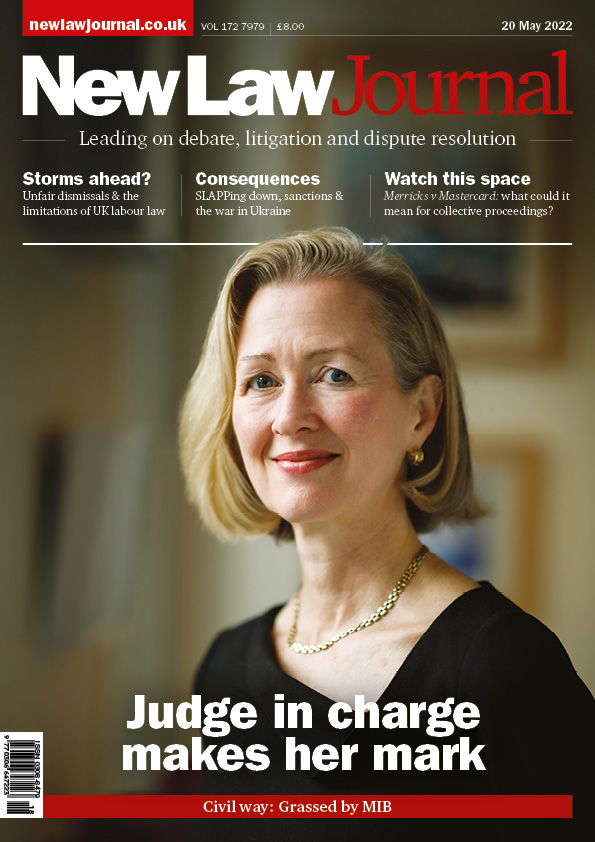THIS ISSUE

Eleanor Leedham reports on lessons learned from Mr Merricks’ multi-billion-pound action against Mastercard: what could this mean for other collective proceedings?
Legal aid has been run into the ground. Is it time for public defenders to step in, asks Roger Smith
James Halsted & Marcin Durlak on the legal dangers of getting lost in translation
Mass dismissal of P&O staff has shed a light on limitations of UK labour law, says Charles Pigott
Simone Potter & Sarah Hill-Smith from The Chancery Lane Project discuss pro bono pathways to using climate clauses
In a wide-ranging interview with NLJ, Mrs Justice Cockerill, head of the Commercial Court, describes the new challenges facing the court and how the pandemic allowed it to test new ways of working that will leave a lasting legacy.
Tom Bedford & Chris Dyke examine the regulatory consequences for firms arising from the war in Ukraine
The four HM Chief Inspectors of police, Criminal Prosecution Service, probation and prison services have issued a devastating warning on the ‘knock-on effect’ of the courts backlog
MOVERS & SHAKERS

Hugh James—Jonathan Askin
London corporate and commercial team announces partner appointment

Michelman Robinson—Daniel Burbeary
Firm names partner as London office managing partner

Kingsley Napley—Jonathan Grimes
Firm appoints new head of criminal litigation team
NEWS
Hugh James has secured 500 places on King’s College London’s new AI Literacy for Law course as part of a major firm-wide push to strengthen its responsible use of generative artificial intelligence
The criminal courts will sit to their maximum capacity next year, after the Lord Chancellor David Lammy lifted the cap on Crown Court sitting days
The Lord Chancellor David Lammy has set out his plans for ‘Blitz courts’, a national listing framework and other elements of the Leveson reforms
A former Commerzbank analyst has been sentenced to eight months in prison for lying during an employment tribunal hearing
The Information Commissioner’s Office (ICO) has joined with 60 data protection authorities from around the world to call for ‘urgent regulatory attention’ to the dangers of artificial intelligence (AI)






